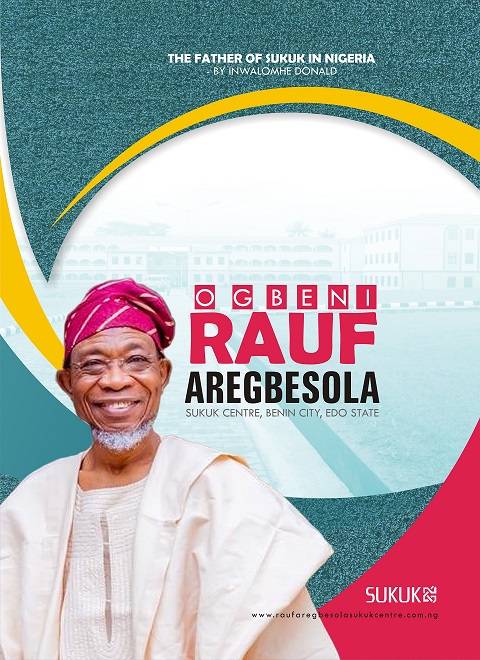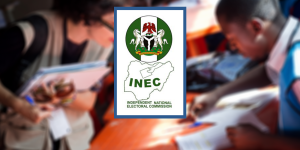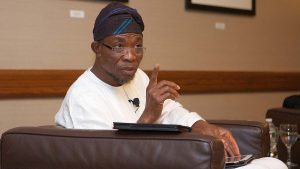SUKUK: AREGBESOLA BORROWED CONSTRUCTIVELY IN OSUN

Islamic finance is a method of financing based on the principles of Islamic law and has several structures that can be adopted to suit various means of financing depending on the circumstances including Murabaha, Takaful, Ijarah, Wakala, etc. It has been instrumental in the finance of several projects around the word, including the UK, South Africa (which was about four times oversubscribed), Senegal and Malaysia. The SEC in 2013, promulgated rules on Sukuk issuance which facilitated the issuance of the first State Sukuk in Nigeria by the Osun State Government, led by Rauf Aregbesola. The issuance was a N14.4 Billion bond for the purpose of financing school constructions across the state was a constructive bond.
Islamic financing is a hitherto untapped deep fund pool, and it is important to ensure that the development of the regulatory framework surrounding same is clear and in line with current global practice, to attract necessary investment.
Leadership in the public or private sector comes to the fore in times of crisis. Nigeria’s infrastructure deficits require visionary leadership. Public sector operatives, elected or appointed, who aspire to provide effective leadership undoubtedly need the efficiencies inherent in privately run corporations or businesses.
The need for sustainable infrastructure in Nigeria has become a pressing issue. It is undeniable, that there is an urgent need for investment in infrastructure in order to reduce the cost of doing business in Nigeria, make Nigerian businesses competitive, and improve the living standards of the people. In 2014, the National Integrated Infrastructure Master Plan estimated the cost of bridging Nigeria’s infrastructure needs at about $2.9 trillion over the next 30 years. The huge funding requirement for infrastructural development in Nigeria indicates that traditional funding methods can no longer suffice as the traditional fund providers, i.e. different levels of Government, do not have such resources at their disposal. In response, Project Finance initiatives and Public Private Partnerships (PPPs) are some of the financing models that are being considered to meet the funding challenge for infrastructure projects.
Public finance for infrastructure comes from a variety of sources, principally taxation but also public borrowing. Although there are sometimes calls, including from the Opposition, to borrow specifically to invest in infrastructure, governments do not borrow to raise money for specific projects, but rather to allow more public spending. Public finance for infrastructure projects will appear on the public sector balance sheet in measures of public sector net debt.
Where do you get resources to build for today? There is something called constructive borrowing and there is destructive. If you borrow to buy a vehicle, you’re putting your¬self in trouble. But if you borrow to build a house, the house will appreciate and then, you can sell it, especially if you are in trouble. So, we have heard this argument before. The State of Osun in southwestern Nigeria raised the first sukuk bond constructively in Nigeria worth ten billion naira (some $62 million) from the capital market to fund educational development. Today Osun Sukuk is driving national fund for development projects. It was the first of such step by Africa’s biggest economy. Former Governor Aregbesola was aware that Islamic financial instruments such as sukuk have been used to finance infrastructure projects in countries like Malaysia and Indonesia, and in the Middle East, and could attract investors from such countries. The former Governor knows that Islamic finance requires a clear link with real economic activity and transactions have to relate to a tangible, identifiable asset, which comes in handy in the case of infrastructure financing.
Financing is how you pay upfront for infrastructure. In this context, it refers to how governments or private companies that own infrastructure find the money to meet the upfront costs of building it. Financing is distinct from funding infrastructure: funding is how taxpayers, consumers or others ultimately pay for infrastructure, including paying back the finance from whichever source government or private owners choose.
Traditionally, infrastructure investments have been financed with public funds. Governments were the main actor in this field, given the inherent public good nature of infrastructure and the positive externalities often generated by such facilities. However, public deficits, increased public debt to GDP ratios and, at times, the inability of the public sector to deliver efficient investment spending, have in many economies led to a reduction in the level of public funds allocated to infrastructure. Budgetary pressures have been compounded in some cases by the need to repair bank balance sheets and rebuild capital and liquidity buffers, owing in part to strengthened prudential regulation in the banking sector. As a consequence, it is increasingly acknowledged that alternative sources of financing are needed to support infrastructure development. In this context, much attention is being focused on the institutional investor sector, given the long-term nature of the liabilities for many types of institutional investors and their corresponding need for suitable long-term assets. For various reasons, including a lack of familiarity with infrastructure investments, institutional investors at present allocate a very small fraction of their investments to infrastructure assets. These investors have traditionally invested in infrastructure through listed companies and fixed income instruments. Infrastructure can be financed using different capital channels and involve different financial structures and instruments. Some, like listed stocks and bonds, are market-based instruments with well-established regulatory frameworks. Banks have traditionally been providers of infrastructure loans. Efforts are underway to develop new financial instruments and techniques for infrastructure finance2. These efforts appear to be having some success. Data indicate, for example, that developments in the equity market for investments in infrastructure are promising and that the creation of a liquid market for project bonds can be a good complement to syndicated loans for project finance. Done properly, the securitisation of bank loans could help support lending and diversify risks, while also assisting in the development of transparent capital market instruments.
Following the success of Osun Sukuk, the first Federal Government of Nigeria (FGN) Sukuk Bond in 2017, FBNQuest Merchant Bank Limited has again been appointed as Co-Financial Adviser to the Debt Management Office (DMO) on the issuance of the second N100 billion Sukuk offer. The Sukuk 2 offer was aimed at consolidating on the gains of the Sukuk 1 by injecting an additional N100billion, which will be directed at funding more infrastructure development projects across the country. The Sukuk further seeks to diversify the FGN’s source of funding, deepen the market for domestic securities and improve financial inclusion, particularly for ethical investors.
The Federal Government took an example from Rauf Aregbesola by taken N100bn sukuk bond for the financing of 25 road projects being handled by the Federal Ministry of Power, Works and Housing across the country. The sukuk proceed would unlock the potential of Nigeria. The minister said, “This is the first sukuk bond issuance for Nigeria. It is about financial inclusion and deepening of our financial markets. The proceeds are used to support government capital spending for 2017 – the construction and rehabilitation of 25 key economic roads across the six geo-political zones of the country.
![]()



